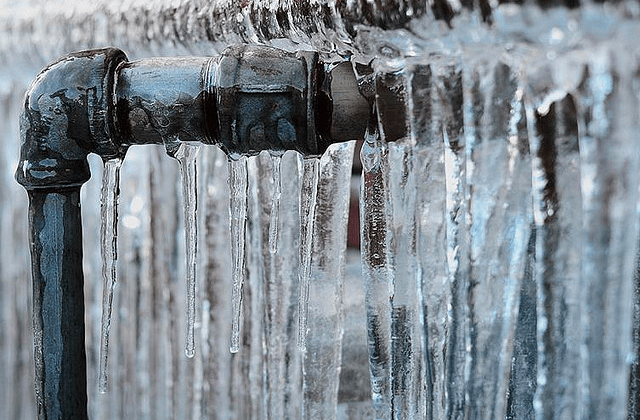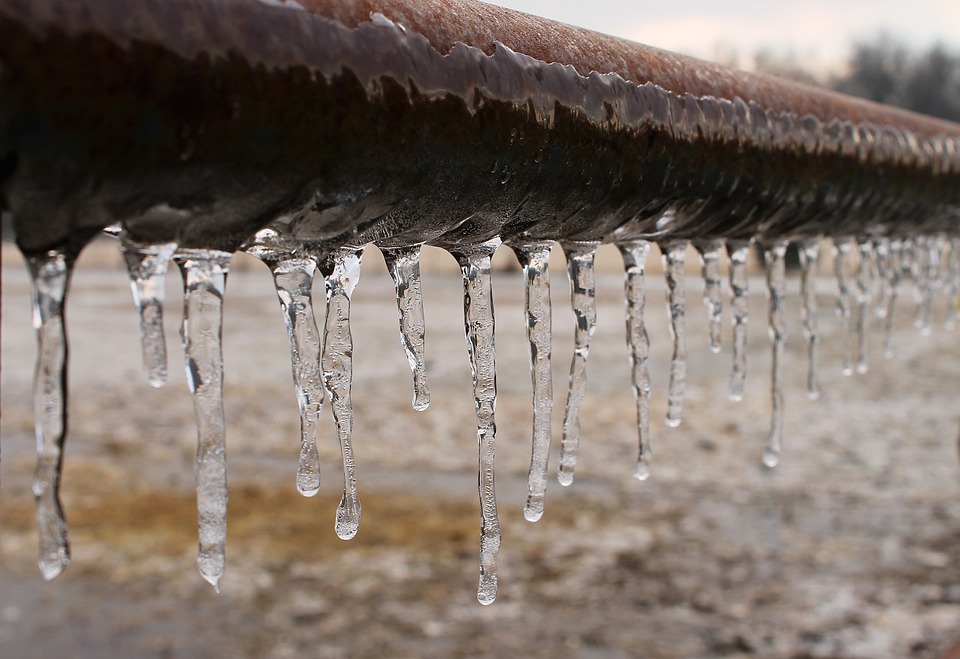Avoiding Your Pipes from Cold Weather: Top Tips
Avoiding Your Pipes from Cold Weather: Top Tips
Blog Article
This great article down the page pertaining to How To Avoid Freezing Pipes is particularly intriguing. Check it out for yourself and decide what you think about it.

Winter can wreak havoc on your pipes, specifically by freezing pipes. Right here's exactly how to prevent it from taking place and what to do if it does.
Intro
As temperatures drop, the risk of frozen pipes rises, possibly leading to pricey fixings and water damages. Recognizing how to avoid frozen pipelines is important for property owners in cold climates.
Understanding Icy Pipelines
What causes pipes to freeze?
Pipelines ice up when revealed to temperature levels listed below 32 ° F (0 ° C) for extended durations. As water inside the pipelines ices up, it increases, taxing the pipeline walls and potentially triggering them to rupture.
Threats and problems
Frozen pipes can cause water system disturbances, home damage, and costly repairs. Ruptured pipelines can flood homes and cause comprehensive architectural damage.
Indications of Frozen Water Lines
Identifying frozen pipelines early can avoid them from rupturing.
Exactly how to identify frozen pipelines
Look for lowered water flow from taps, uncommon odors or noises from pipelines, and visible frost on revealed pipelines.
Prevention Tips
Insulating prone pipes
Wrap pipes in insulation sleeves or use warmth tape to safeguard them from freezing temperature levels. Concentrate on pipelines in unheated or outside areas of the home.
Home heating strategies
Maintain interior rooms adequately heated, particularly locations with pipes. Open cupboard doors to allow warm air to circulate around pipes under sinks.
Safeguarding Exterior Plumbing
Garden hoses and outside faucets
Detach and drain yard hoses before winter. Mount frost-proof faucets or cover exterior taps with insulated caps.
What to Do If Your Pipes Freeze
Immediate activities to take
If you think frozen pipelines, keep taps available to soothe pressure as the ice thaws. Use a hairdryer or towels taken in hot water to thaw pipes gradually.
Long-Term Solutions
Architectural changes
Consider rerouting pipes far from outside wall surfaces or unheated locations. Include added insulation to attics, cellars, and crawl spaces.
Updating insulation
Purchase premium insulation for pipes, attics, and walls. Correct insulation assists preserve consistent temperatures and minimizes the danger of frozen pipes.
Final thought
Avoiding icy pipes requires aggressive steps and quick actions. By recognizing the reasons, indications, and preventive measures, home owners can protect their plumbing throughout cold weather.
Helpful Tips to Prevent Frozen Pipes this Winter
UNDERSTANDING THE BASICS: WHY PIPES FREEZE AND WHY IT’S A PROBLEM
Water freezing inside pipes is common during the winter months, but understanding why pipes freeze, and the potential problems it can cause is crucial in preventing such incidents. This section will delve into the basics of why pipes freeze and the associated problems that may arise.
THE SCIENCE BEHIND FROZEN PIPES
When water reaches freezing temperatures, it undergoes a physical transformation and solidifies into ice. This expansion of water as it freezes is the primary reason pipes can burst. As the water inside the pipe freezes, it expands, creating immense pressure on the walls. If the pressure becomes too great, the pipe can crack or rupture, leading to leaks and water damage.
FACTORS THAT CONTRIBUTE TO PIPE FREEZING
Low Temperatures: Extremely cold weather, especially below freezing, increases the risk of pipes freezing. Uninsulated or Poorly Insulated Pipes: Pipes located in unheated areas, such as basements, crawl spaces, or attics, are more prone to freezing. Insufficient insulation or lack of insulation altogether exacerbates the problem. Exterior Wall Exposure: Pipes running along exterior walls are susceptible to freezing as they encounter colder temperatures outside. Lack of Heating or Temperature Regulation: Inadequate heating or inconsistent temperature control in your home can contribute to frozen pipes. PROBLEMS CAUSED BY FROZEN PIPES
- Pipe Bursting: As mentioned earlier, the expansion of water as it freezes can cause pipes to burst, resulting in significant water damage.
- Water Damage: When pipes burst, it can lead to flooding and water damage to your property, including walls, ceilings, flooring, and personal belongings.
- Structural Damage: Prolonged exposure to water from burst pipes can compromise the structural integrity of your home, leading to costly repairs.
- Mold and Mildew Growth: Excess moisture from water damage can create a favorable environment for mold and mildew growth, posing health risks to occupants.
- Disrupted Water Supply: Frozen pipes can also result in a complete or partial loss of water supply until the issue is resolved.
WHY CERTAIN PIPES ARE MORE PRONE TO FREEZING
- Location: Pipes located in unheated or poorly insulated areas, such as basements, crawl spaces, attics, or exterior walls, are at higher risk of freezing.
- Exterior Pipes: Outdoor pipes, such as those used for irrigation or exposed plumbing, are particularly vulnerable to freezing as they are directly exposed to the elements.
- Supply Lines: Pipes that carry water from the main water supply into your home, including the main water line, are critical to protect as freezing in these lines can affect your entire plumbing system.
- Underground Pipes: Pipes buried underground, such as those connected to sprinkler systems or outdoor faucets, can be susceptible to freezing if not properly insulated.
https://busybusy.com/blog/helpful-tips-to-prevent-frozen-pipes-this-winter/

I stumbled upon that entry about Preventing and dealing with frozen pipes while doing a search on the internet. I beg you set aside a second to promote this blog post if you appreciated it. Thanks so much for your time invested reading it.
More Details Report this page